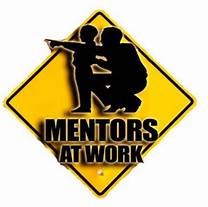23 Tips for Finding, Qualifying & Using Mentors for your Startup or Small Business
“A mentor is someone who sees more talent and ability within you, than you see in yourself, and helps bring it out of you.” — Bob Proctor & Gamble [ No, that was a Gamble to say that, LoL ] Bob Proctor is a “Law of Attraction” Teacher from ‘The Secret’ Movie
Mentor Topics: Part 1. Finding (Sources), Part 2. Qualifying (Characteristics, Questions), Part 3. Using (Listen & Act), Part 4. Roles Responsibilities (3 Phases).
Part 1. Finding a Mentor
 Most Entrepreneurs are inexperienced the first time they launch a business. And there’s only one way to overcome this inexperience quickly: by getting a Mentor – who has the experience – and can give you guidance on you journey. How do you find Mentors?
Most Entrepreneurs are inexperienced the first time they launch a business. And there’s only one way to overcome this inexperience quickly: by getting a Mentor – who has the experience – and can give you guidance on you journey. How do you find Mentors?
1. Service Corps of Retired Executives
SCORE is an organization dedicated to helping Entrepreneurs start, run & grow their own businesses. There are currently more than 11,000 volunteers in the program, with 320 chapters around the country. Thru SCORE, you can request a free face-to-face meeting with a Mentor to discuss your business idea — and you may be able to form a more lasting partnership.
2. Small Business Development Centers
SBDCs are independent organizations that provide resources, expertise & advice to emerging Entrepreneurs. Drawing on SBA, State & local Govt funds & resources from the private sector, you should be able to find free consultation at an SBDC near you.
3. Networking Events . . .
are designed to put people in contact with one another, making these events perfect opportunities to expand your professional network. Try to talk to as many people as you can, and don’t be too forward with your goals; instead, wait for a potential partnership to make itself evident to you.
4. LinkedIn & Twitter . . .
are the big players for connecting with professionals. Find potential candidates based on your industry and/or demographic area, and be sure to get to know them – before asking them to be your Mentor.
5. Industry Events
Are there any industry Expos coming up in your area? Conferences or speaking events regarding your industry? If so, these are perfect places to find someone more experienced than you — and you can learn more about your industry during the search.
6. B2B Partners
Seek out your indirect Competitors, such as companies in the same industry targeting a different segment of the market, or companies across the country with no bearing on your local relationships. If these companies have been in business longer than you have, their leadership will have considerable wisdom to
7. Volunteering . . .
is a surprisingly good way to make new connections. You’ll meet all kinds of people, from Founders to CEO’s to Retirees of these. They will be able to teach you something new from their experience; plus, you’ll be giving back to the community in the meantime and possibly improving the reputation of your business in the process.
Conclusion: Once you have a Mentor, remain respectful of their time and stay actively engaged: The more invested you are in the partnership, the more you stand to gain from it.
Part 2. Qualifying a Mentor

As a good business Mentor, you will have certain characteristics.
1. Characteristics:
- They have a strong desire to help others to grow & develop.
- They have an understanding of how business works: both the strategic direction and what its drivers and those of the wider industry are.
- You will have strong listening skills and patience with their Mentees (not Manatees).
- Willingness to devote time and energy to Mentees – above & beyond normal responsibilities.
- Be approachable and accessible
Types Of Questions To Ask A Mentor
2. Experiences
- How did you learn to embrace risk-taking?
- Tell me about a recent business setback. How did you recover?
- Was there ever a role you applied for and
- Which leadership skills were the most difficult to develop?
- What’s the most important leadership lesson you’ve learned and how has it proven invaluable?
3. Self-Awareness
- What do you see see as your strengths?
- What was your most important lesson in leadership?
- How would you communicate new Business ideas?
4. Skill-Building
- What’s your best situation as a Negotiator?
- How can I become better at motivating & managing people?
- What’s a good methodology for Project Management?
- How do you sell Co. Vision to the Team?
- What new skills do I need to move ahead?
Part 3. Using your Mentor
 A Mentor will become not only your advisor, but your friend & confidante. That doesn’t happen instantly. Building trust & a relationship takes time. You set the tone at the outset of the relationship by demonstrating your commitment to the process. The Mentor should be involved mainly in the big picture, but also the details when needed. Not only should you talk about current issues, you should also focus on short & long-term goals.” With mutual respect – demonstrated thru action as well as attitude, your Mentoring relationship can be mutually rewarding by:
A Mentor will become not only your advisor, but your friend & confidante. That doesn’t happen instantly. Building trust & a relationship takes time. You set the tone at the outset of the relationship by demonstrating your commitment to the process. The Mentor should be involved mainly in the big picture, but also the details when needed. Not only should you talk about current issues, you should also focus on short & long-term goals.” With mutual respect – demonstrated thru action as well as attitude, your Mentoring relationship can be mutually rewarding by:
- Start with: “I would really value your opinion.” It shows you have confidence in their advice. It will make for a more pleasant conversation that you are open to their ideas.
- Don’t try to monopolize a lot of your Mentor’s time. Be prepared and connect in a way that’s quick & easy. Offer to drive him to the airport or share a cab. Ask what he likes in his coffee or tea, bring him a Starbucks and get 15 quality minutes.
- Be clear about what you’re doing & what you need. There is so much “murky thinking” in the world. Work on developing a clear Elevator speech & Mission statement. Think about one or two specific questions you need answered and think about your words and how to ask those questions clearly.
- Listen, listen, listen to what they say. Don’t think about all the reasons why you can’t. That’s part of the reason why you’re not there yet. Say, “I’m dealing with ______, how would you suggest overcoming those obstacles. Then decide if you want to take their advice as-is, modify it or ignore it.
- Learn to make the Link between Cause & Effect. Don’t put your Mentor in a position where he/she has to figure it all out for you. The job of a Mentor is not to take you by the hand every step of the way. It’s to give you some guidance as you’re on your way. Your job is to make the link between what you are told and how you will apply it to your life.
- Thank your Mentor for their time, and tell them what you’re going to do and then when you take action, be sure to let them know what you’re doing. Always, always, always tell them when you take an action step.
- Taking an interest in your Mentor as a Person & build a Relationship. Get to know them – likes & dis-likes, hobbies and other interests. Show you really care, but also make yourself real and make it light & fun.
- Reciprocate to your Mentor – once in awhile. If you see a great article that you think they would enjoy – send it to them with a short note. If you have a trade or a skill and can offer to help them out in some way – offer it. Say, “I’m really very good at _____. If you ever need _____ give me a call, I’ll be more than happy to help out any way I can.” Even if he never takes you up on it, he will appreciate your offer.
Part 4. Mentor Roles Responsibilities
A good Mentor will in:
Phase 1: Communicating Expectations
- Have a clear understanding of your expectations for your Mentee
- Clearly communicate those expectations
- Stay flexible in changing expectations or plans
- Create goals with milestones & deliverables
- Adapt your feedback to your Mentee’s learning style
- Be realistic about setting timelines
Phase 2: Working Together
- Advise on what you know and admit the things you don’t know
- Use your experience from working with other Mentees to help this one to show them – what works & what doesn’t
- Recognize your Mentee’s weaknesses & build on his/her strengths
- Offer constructive feedback, Eval progress
- Be your Mentee’s supporter when they reach their goals
Phase 3: Meeting All the Goals
- After Mentoring is completed, follow up on successes
- Provide an evaluation of the experience
- Repeat the Mentoring process with others
Comments: Do you have anything you can add to Finding, Qualifying & Using a Mentor?
from Entrepreneur, Forbes & SmBizBal 6/19 enhanced by Peter/CXO Wiz4.biz
For more Info, click on Mentor.
